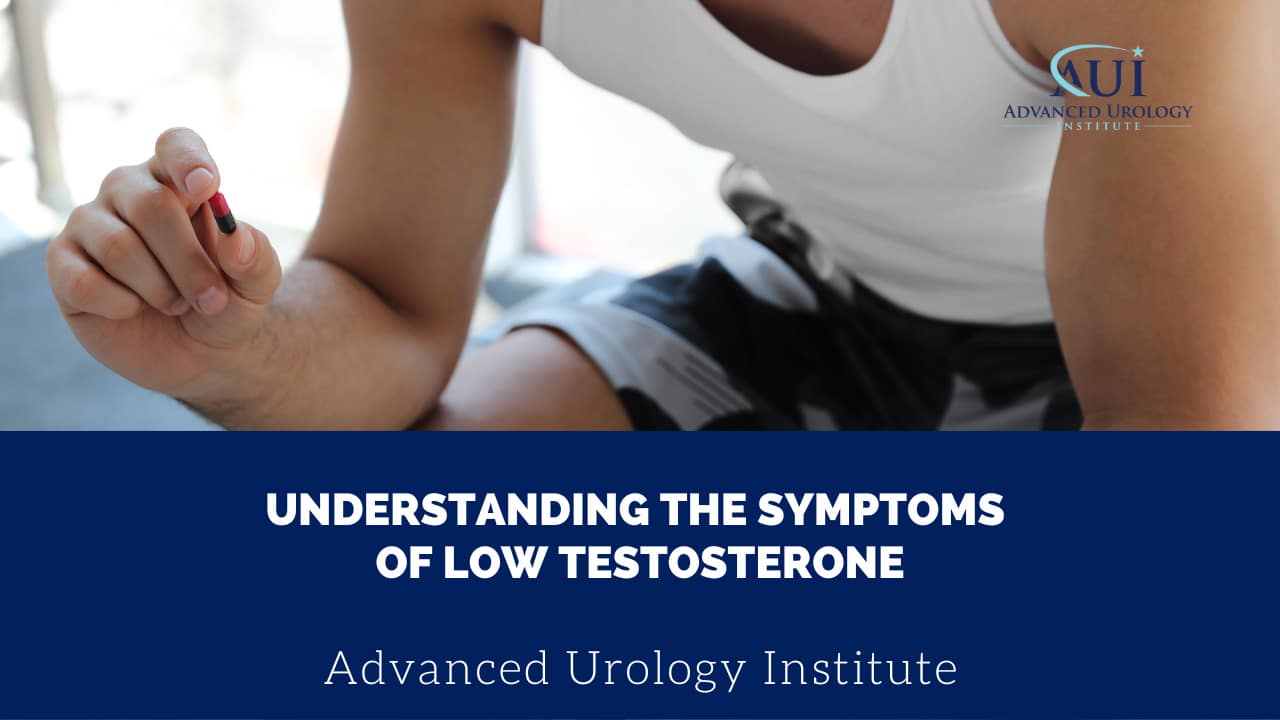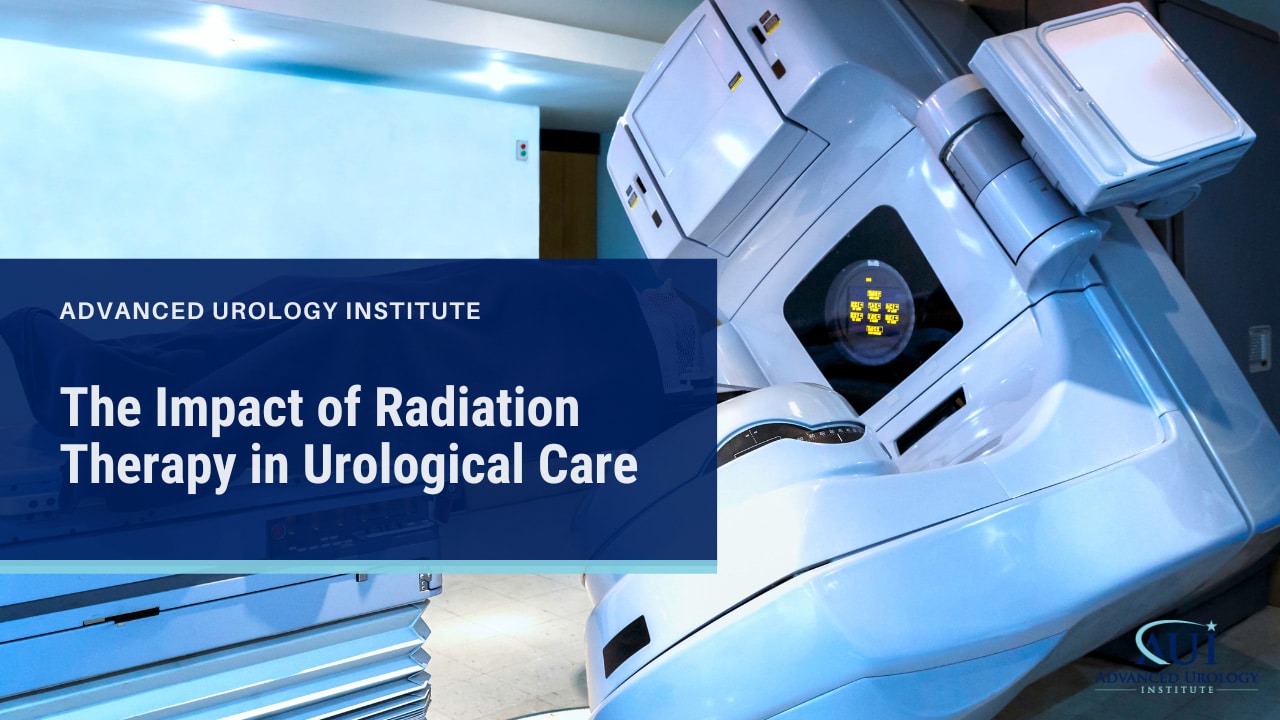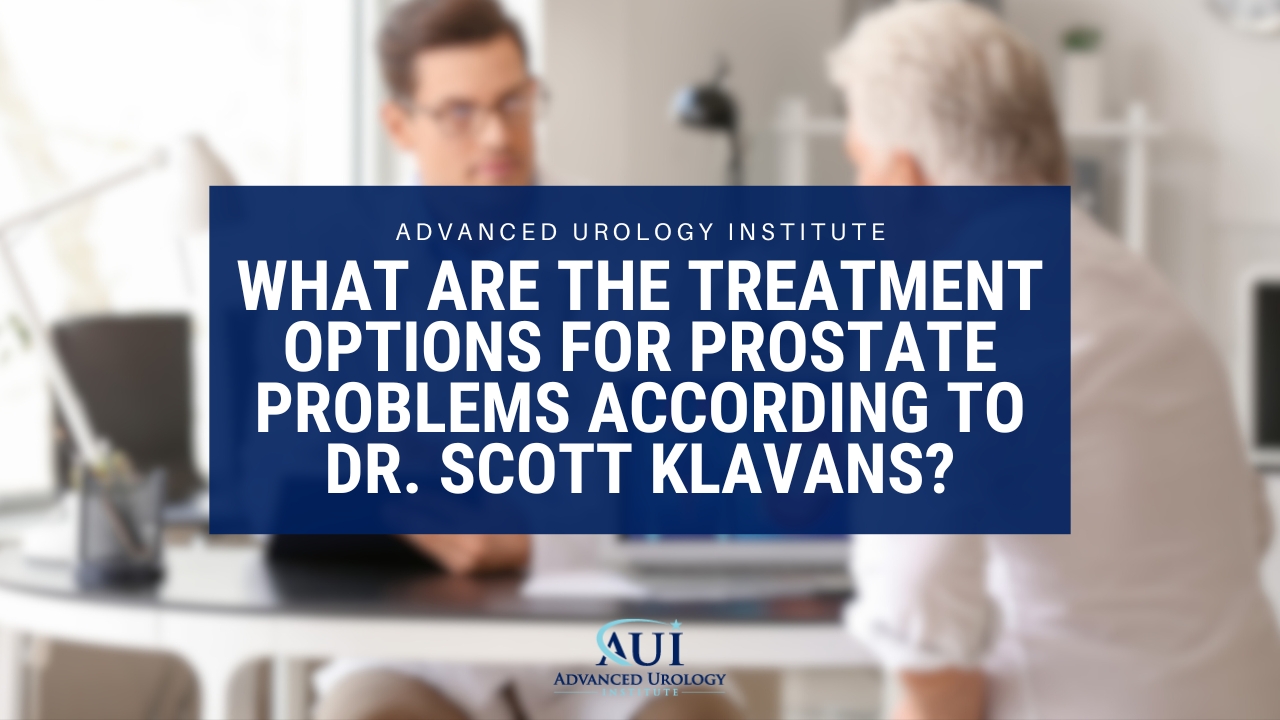Dr. M. Scott Klavans, a board-certified urologist in Largo, FL has observed many patients continue to ignore the symptoms of low testosterone
Continue readingThe Impact of Radiation Therapy in Urological Care
Our urologists in Naples and Largo, FL provides a foundation for understanding the impact of radiation therapy in the realm of urology.
Continue readingNicole Szell, DO: Elevating Quality of Life Through Urological Expertise
Dr. Nicole Szell, a urologist in Advanced Urology Institute in Largo, FL whos demeanor and urological expertise helps her patients be at ease.
Continue readingWhat are the treatment options for prostate problems according to Dr. Scott Klavans?
The Effectiveness of Erectile Dysfunction Treatments
Worried about your inability to get or maintain an erection? Stop worrying and visit your doctor for an open and honest chat. A urologist can help you find safe and effective treatment of erectile dysfunction that will enable you to approach any future dates with your partner with confidence. Urologists are experts in treating erectile dysfunction and other genitourinary issues, so do not be anxious about such a visit. In fact, you will be surprised to find that your doctor is probably seeing up to a half dozen men with ED every week.
Oral ED Medications
The first choice of treatment for ED is usually oral medications called phosphodiesterase inhibitors type 5 (PDEi-5). These drugs include the first-generation agents such as sildenafil (Viagra), vardenafil (Levitra) and tadalafil (Cialis), together with second-generation agents like mirodenafil (Mvix), iodenafil (Helleva), udenafil (Zydena) and avanafil (Stendra). With the drugs providing a normal, natural erection in 80-95 percent of men as long as there is sexual stimulation, they are the best option for many men with ED. They also deliver high efficacy rates and favorable safety levels.
Transurethral and Intracavernosal Injections
If you are unresponsive to oral drugs, your doctor will review your treatment and consider other options. The urologist may consider a transurethral injection with a drug called alprostadil. The doctor may go for this option if your penile nerves have been compromised and you need to bypass the neurological pathways responsible for an erection. Another option may be an intracavernous injection of papaverine, phentolamine, PGE1 or vasoactive intestinal peptide (VIP). The injections are a good treatment choice with 91-96 percent success rates and proven safety. These drugs may be combined for better efficacy.
Vacuum Constriction Devices
Vacuum erection devices also may be considered. But these are commonly offered to elderly patients who may only want occasional sexual intercourse. Younger men do not like these devices because of the unnatural feeling of the erections and the mechanical procedure necessary to produce the erections. You should discuss this option with your doctor and find out if the devices are ideal for you.
Surgical Therapies
When medical therapies fail, your urologist may recommend surgery. Surgical procedures are often the last option because of the cost, non-reversibility and invasiveness involved. There are two kinds of surgery for men with ED: penile prosthesis and penile revascularization. In penile prosthesis, the urologist inserts an inflatable or semi-rigid implant into the penis tissue. The success rate of penile prosthesis is 97 percent, but the implant must be replaced every 8-15 years. Penile revascularization is a surgical procedure to repair either venous ligation or arterial stenosis. Explore surgery with your doctor if the other options fail to work for you, but be sure to understand what is involved before you make a decision.
Non-Specific Interventions
Erectile dysfunction treatments may be accompanied by other interventions. For instance, psychotherapy is a noninvasive and highly effective intervention that is often combined with other therapies for a better success rate. Likewise, your urologist may recommend lifestyle modifications, such as increased physical activity, dietary changes, moderate alcohol consumption or a decision to stop smoking in order to improve your ED symptoms and minimize cardiovascular risk. If tests show that you have low testosterone, your doctor may recommend testosterone replacement therapy before you use ED-specific medications. If you are a younger, healthier man, testosterone therapy may just be what you need for enhanced sexual desire and harder erections.
At Advanced Urology Institute, we have established a multidisciplinary, compassionate and patient-centered approach to the treatment of erectile dysfunction. We prioritize the needs and expectations of our patients during treatment, educating them and providing a supportive environment that ensures shared decision-making. We also conduct meticulous follow-ups to identify any changes in the relationships, health and emotional status of our patients to optimize the efficacy of our treatments. If you are experiencing bothersome and embarrassing ED, visit one of our urologists for help. Get more information on the treatment of erectile dysfunction at the “Advanced Urology Institute” site.
Christopher Sherman Becoming a Urologist
The Long Path
Right from childhood, I have had a knack for helping people rise above their limitations. As a native of Florida’s Coral Springs I was often surrounded by people with various medical conditions who had few physicians to attend to them. I made up my mind early that I would pursue medicine to be able to make an impact on these lives. I got my undergraduate degree in health science at the University of Florida, then moved to the College of Medicine, Florida State University, for my medical school degree. After that I took a one-year general surgery training followed by a four-year urology residency at the University of Louisville in Kentucky.
Areas of Expertise
During my training, I became interested in medical technology and in advanced medical procedures. I not only honed my skills in minimally invasive techniques and robot-assisted surgery, but also mastered a number of specialized procedures such as laser surgery for BPH, Botox therapy for overactive bladder, interstim therapy for underactive and overactive bladder, and urethral slings for voiding dysfunction. Through my expertise as a urologist, I have been able to achieve my life’s dream of re-igniting the desire and joy to live in people facing their most uncomfortable, painful or lowest moments. As a urologist, I always feel a sense of peace and fulfillment after making a positive change in the life of a patient.
Job Satisfaction
As urologists, we work for long hours and often face stressful situations. But we take pride in our capacity to persevere and consistently deliver safe, timely and effective treatments. In fact, the challenges just help bring out the best in us and make our job even more interesting. We understand that to have the opportunity to help the sick is very rewarding. We also get to know our patients, win their trust and establish very close relationships. It is so satisfying to take care of patients and be able to make a difference in their lives.
Why Advanced Urology Institute
Every urologist yearns for a workplace that can bring out the best of their skills, talents and experiences and enable them to offer the best possible care. At Advanced Urology Institute, all administrative work has been centralized, allowing physicians to have enough time, tools and drive to collaborate, research, innovate and give the best possible care to their patients. AUI enables us to be in the company of other skilled, passionate, hard-working and creative people, making it easier for us to perform at our best and to take our careers to whatever heights we imagine. At AUI, urologists are living their dreams! For more information, visit the “Advanced Urology Institute” site.






